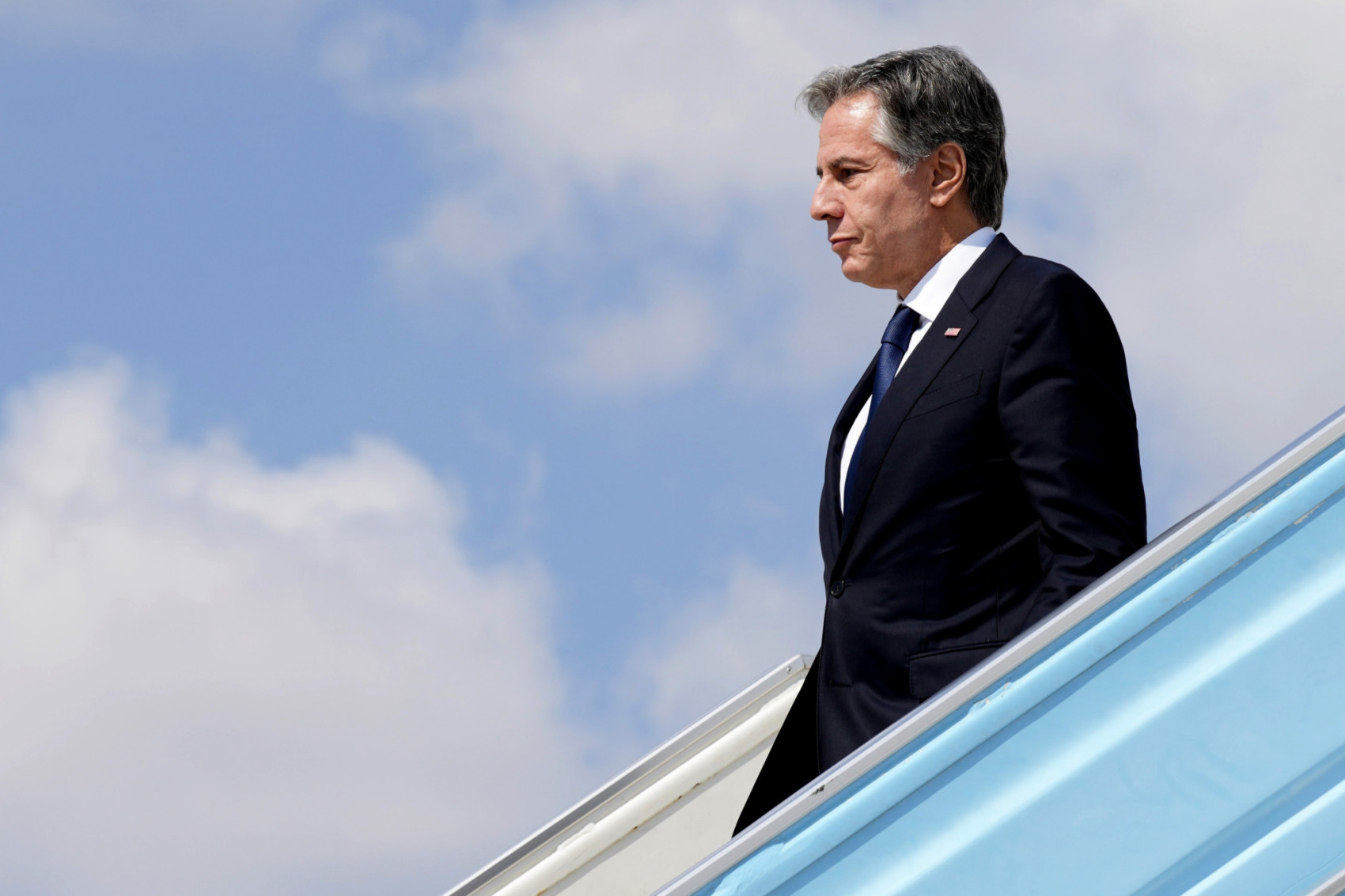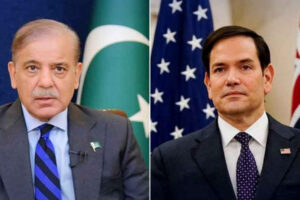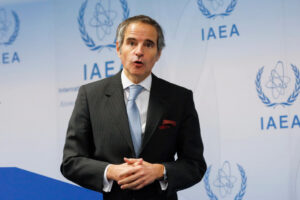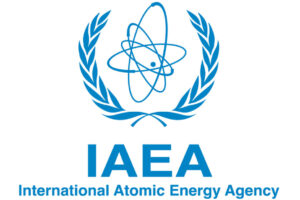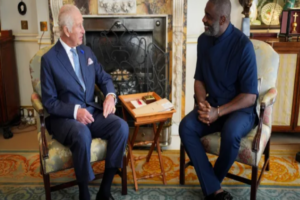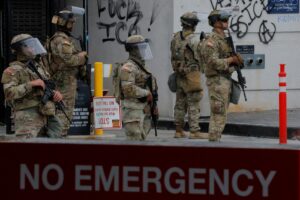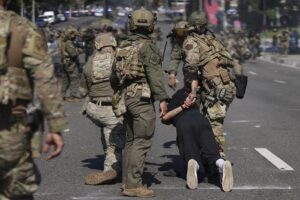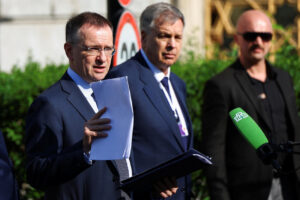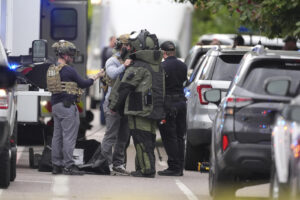Tokyo, 11 June, /AJMEDIA/
U.S. Secretary of State Antony Blinken returned Monday to the Middle East as a proposed Israel-Hamas cease-fire deal hangs in the balance after the rescue of four Israeli hostages held in Gaza in a military raid and following the latest turmoil in Prime Minister Benjamin Netanyahu’s government.
With no firm public response yet from Hamas or Israel to the proposal they received 10 days ago, Blinken started his eighth visit to the region since the conflict began in October by meeting with President Abdel Fattah el-Sissi of Egypt, a key mediator with the militant Hamas group, and then talks with Israeli Prime Minister Benjamin Netanyahu.
Blinken once again called on Hamas to accept the plan, which he said has wide international support.
“If you want a cease-fire, press Hamas to say ‘yes,’” he told reporters before leaving Cairo on the trip that will take him to Israel, Jordan and Qatar. Blinken said Israel has accepted the proposal, though Netanyahu has not said so directly.
“I know that there are those who are pessimistic about the prospects,” Blinken said, putting the onus squarely on Hamas. “That’s understandable. Hamas continues to show extraordinary cynicism in its actions, a disinterest not only in the well-being and security of Israelis but also Palestinians.”
Blinken said the plan on the table is the “single best way” to get to a cease-fire, release the remaining hostages and improve regional security.
While President Joe Biden, Blinken and other U.S. officials have praised the hostage rescue, the operation resulted in the deaths of a large number of Palestinian civilians and may complicate the cease-fire push by emboldening Israel and hardening Hamas’ resolve to carry on fighting in the war it started with its Oct. 7 attack into Israel.
“It’s hard to say how Hamas will process this particular operation and what it will do to its determination about whether it will say yes or not,” Biden’s national security adviser, Jake Sullivan, said Sunday. “We are hopeful that with enough of a chorus, the international community all speaking with one voice, Hamas will get to the right answer,” Sullivan told ABC’s “This Week.”
In his talks with el-Sissi, Blinken also discussed plans for post-conflict governance and reconstruction in Gaza, following massive destruction there.
“It’s imperative that there be a plan, and that has to involve security, it has to involve governance, it has to involve reconstruction,” Blinken said.
Netanyahu and his government have resisted calls for any ‘day after’ plan that would bar Israel from having some form of security presence in the territory. Blinken said he would urge Israel to come up with alternatives that would be acceptable.
“It would be very good if Israel put forward its own ideas on this, and I’ll be talking to the government about that,” he said. “But one way or another, we’ve got to have these plans, we’ve got to have them in place, we’ve got to be ready to go if we want to take advantage of a cease-fire.”
The three-phase cease-fire plan calls for the release of more hostages and a temporary pause in hostilities that will last as long as it takes to negotiate the second phase, which aims to bring the release of all hostages, a “full withdrawal of Israeli forces from Gaza” and “a permanent end to hostilities,” according to an American-drafted resolution put before the U.N. Security Council. The third phase calls for reconstruction in Gaza.
The Security Council is to vote Monday afternoon on the resolution, which welcomes the proposal and urges Hamas to accept it.
But Hamas may not be the only obstacle.
Although the deal has been described as an Israeli initiative and thousands of Israelis have demonstrated in support of it, Netanyahu has expressed skepticism, saying what has been presented publicly is not accurate and that Israel is still committed to destroying Hamas.
Netanyahu’s far-right allies have threatened to collapse his government if he implements the plan. Benny Gantz, a popular centrist, resigned on Sunday from the three-member War Cabinet after saying he would do so if the prime minister did not formulate a new plan for postwar Gaza. In the aftermath of the hostage rescue, Netanyahu had urged him not to step down.
Blinken has met with Netanyahu, Defense Minister Yoav Gallant, Gantz and Israeli opposition leader Yair Lapid on nearly all his previous trips to Israel. Officials said Blinken is expected to meet with Gantz on Tuesday.
Despite Blinken’s roughly once-a-month visits to the region since the war began, the conflict has ground on with more than 37,120 Palestinians killed, according to the Gaza Health Ministry, which does not differentiate between civilians and combatants in its counts. Hamas and other militants killed some 1,200 people in the Oct. 7 attack, mostly civilians, and took around 250 people hostage.
The war has severely hindered the flow of food, medicine and other supplies to the Palestinians in Gaza, who are facing widespread hunger. U.N. agencies say more than 1 million people in the territory could experience the highest level of starvation by mid-July.
In Jordan, Blinken will take part in an emergency international conference on improving the flow of aid to Gaza.
© Copyright 2024 The Associated Press. All rights reserved. This material may not be published, broadcast, rewritten or redistributed without permission.

